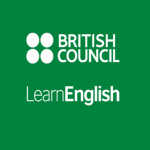پادکست British Council سطح C1 شماره 3
پادکست British Council سطح C1 شماره 3 :An interview about two books
با سومین قسمت از پادکست British Council سطح C1 (پایه Advanced) همراه شما هستیم.
گوش دادن به این پادکست ها به تقویت مهارت listening ات کمک زیادی میکنه، پس اگه سطحت Advanced ئه و دوست داری این مهارت خیلی مهم رو از همون قدم های اول یادگیری زبان تقویت کنی، این پادکست رو از دست نده!
قبل از گوش دادن به پادکست، تمرین آمادگی زیر را انجام بده. بعد به پادکست گوش کن و تمرین های آخر مطلب را با توجه به محتوای پادکست انجام بده.
تمرین آمادگی
کلمات ستون سمت چپ را به معنی آن ها در ستون راست وصل کن: (جواب تمرین در انتهای صفحه)
| معانی – Definition | لغات – Vocabulary |
| a. to completely surround yourself with b. showing distress or anxiety c. having a fundamental weakness or imperfection d. something you naturally feel or want to do e. the person telling a story f. the most important information about something g. to treat badly h. bad or illegal behaviour | flawed a narrator troubled to immerse yourself in to mistreat an instinct wrongdoing the lowdown |
حالا به پادکست گوش کن. در این قسمت قراره به یه مصاحبه درمورد دو تا کتاب گوش بدی. با گوش دادن به پادکست هم می تونی مهارت شنیداریت رو تقویت کنی و هم کلی عبارت و کلمه ی کاربردی یاد بگیری.
British Council – Advanced: An interview about two books

متن پادکست:
Presenter: Today we’re looking at the darker side of literature with two books about not-so-happy families. And we’ve got writer Helen Slade and book critic Anna Kimura to talk us through them. First up, we’re looking at Her Mother’s Daughter by Alice Fitzgerald, a novel written from two points of view, one of a child and the other of her very troubled mother. Helen, I have to be honest. I found this one hard to read. It’s very well written but, well, how did you find it?
Helen: I know what you mean, but I literally couldn’t put it down and stayed up till three in the morning to finish it. There’s something about immersing yourself in a family this flawed, this damaged, that’s compelling. You’d never want to be in that family yourself, but that’s what reading is about, isn’t it? Wearing someone else’s shoes for a while without ever having to live their reality.
Presenter: You surprise me! The families in your own books are a million miles away from this one.
Helen: Yeah, my readers can always be sure they’re going to get a happy ending. Which you definitely … I don’t want to give too much away here, but you definitely don’t feel like a happy ending is coming for these characters.
Presenter: OK, so don’t mention the ending, but can you just describe for listeners what the book is about?
Helen: So, it’s about a family with secrets. The mother has hidden her troubled childhood from her husband and her two children but, of course, it’s shaped her entire personality and how she behaves as a mother and as a wife. Which is especially obvious when we’re reading the sections told in the child’s voice, even though the little girl herself doesn’t understand the meaning of everything she’s seeing.
Presenter: For me, what was really so shocking was less what happened to the mother when she was a child but how the mother treated her own children. Why is that, do you think?
Helen: I think we’re all programmed to see mothers as something sacred and pure. As a child she was mistreated by her father, and in some ways we’re not that shocked by that, which is a sad thing in itself, and her own mother didn’t help her. As a reader we’re less affected by that, I think, because that part of the story is revealed to us in the mother’s voice, the adult voice. But the reason the way she treats her own child is so much more shocking is that the child is telling us about it and we sympathise with her. It’s very clever how the author plays on our natural instincts to protect a child.
Presenter: Though we do feel sorry for the mother too. Or, at least, I did.
Helen: It’s hard not to. She’s trapped in her own unhappiness.
Presenter: And we’re trapped right there with her as the reader. It made me wonder, Anna, why is it that miserable books like this one sell so well?
Anna: Because all of us have families. I suppose the books play out things we all see in much smaller ways in our own family lives.
Presenter: The other hard-hitting book this week is We Need to Talk About Kevin by Lionel Shriver. Now there’s a family who have a problem!
Anna: They definitely do. Very few people will ever have a killer as a teenage son like the narrator in the book, but we can all identify with the challenges and often terrifying reality of raising teenagers!
Presenter: So can you give us the lowdown on Kevin, then, Anna?
Anna: This book is written from the point of view of the mother in letters she’s writing to her husband, Kevin’s father. Again, we shouldn’t say too much about the ending, but the way the author uses the letters is very clever.
Presenter: I have to admit, I really enjoyed this book. It’s a difficult topic, but it was much easier to read than Her Mother’s Daughter.
Anna: As Helen said before, it’s about the voice of the narrator. There’s no child’s voice and, in this story, the victims in many ways are the adults, though, of course, Kevin’s sister is a victim of her brother’s evil.
Helen: Yes, and the idea of where ‘evil’ comes from is a theme that comes out in both books. If you choose to call it ‘evil’ that is. I prefer to describe it as a complete lack of empathy. The mother in Her Mother’s Daughter had a terrible childhood, but Kevin’s from a happy home and good parents.
Presenter: Is he though? The mother often admits she found motherhood hard. Aren’t we supposed to think she might have caused Kevin to turn out the way he does? Just like in Her Mother’s Daughter.
Anna: Both books certainly look at how the mistakes of the parents affect children. And this is another reason we relate to these books. Parents are always worrying if they’re doing a good job.
حالا به سوالات زیر جواب بده:
تسک 1
عبارات داخل پرانتز را در ستون مناسب قرار بده:
(About an adolescent child, Was challenging for the podcast presenter to finish, Features a normal family , Partly told from a child’s perspective , Includes murder in the story, Involves three generations of one family)
| We Need to Talk About Kevin | Her Mother’s Daughter |
تسک 2
جواب درست را انتخاب کن:
1.The presenter and Helen differ on …
a. how they see the characters in the book.
b. what they think about the quality of the writing.
c. how much they enjoyed reading the book.
2. Helen enjoyed Her Mother’s Daughter because …
a. it’s totally different from the books she writes herself.
b. it’s totally different from her own life.
c. it has a happy ending.
3.What is Her Mother’s Daughter about?
a. The problems a mother has with her husband and children.
b. The way a mother’s childhood affects her when she has children herself.
c. A child who does something shocking that her parents can’t understand.
4.Why are sad books about families popular, according to Anna?
a. They make us feel as if our own families are better than the ones in books.
b. All families have similar problems, they’re just less dramatic.
c. People have small families nowadays so they like reading about other families.
5.What aspect of We Need to Talk About Kevin will people be able to relate to?
a. what it’s like to bring up teenagers
b. how we feel when people we know are killed
c. how it feels to be a victim
6.What do the two books have in common?
a. They’re both about happy homes.
b. They’re both about how parents affect their children.
c. They’re both about how parents worry about their children.
جواب ها
1. c
2. e
3. b
4.a
5. g
6. d
7. h
8.f
تسک 1
| We Need to Talk About Kevin | Her Mother’s Daughter |
| About an adolescent child | Was challenging for the podcast presenter to finish |
| Features a normal family | Partly told from a child’s perspective |
| Includes murder in the story | Involves three generations of one family |
تسک 2
1. c
2. b
3. b
4. b
5.a
6.b
امیدوارم از پادکست British Council سطح C1 شماره 3 لذت برده باشید. برای دسترسی به قسمت های دیگر این پادکست می توانید از صفحه ی پادکست British Council آکادمی مجازی آموزش زبان 24talk دیدن کنید.
همچنین برای گوش دادن به پادکست های BBC می توانید به صفحه ی پادکست 6 دقیقه انگلیسی (BBC) آکادمی مجازی آموزش زبان 24talk مراجعه کنید.
گوش دادن به پادکست روش خوبی برای تقویت مهارت شنیداری و هم چنین یادگرفتن کلمات در بستر یک موضوع خاصه که این به تقویت مهارت مکالمه انگلیسی نیز کمک زیادی می کنه.
اگه دنبال این هستی که مهارت های مکالمه زبان انگلیسیت رو بیشتر از این تقویت کنی بهت پیشنهاد میکنم در دورهی مکالمه زبان انگلیسی آکادمی مجازی آموزش زبان انگلیسی 24talk شرکت کنی که با یه برنامه منسجم و خلاقانه کمک میکنه در زمان کوتاه بتونی به راحتی و روانی انگلیسی صحبت کنی.







